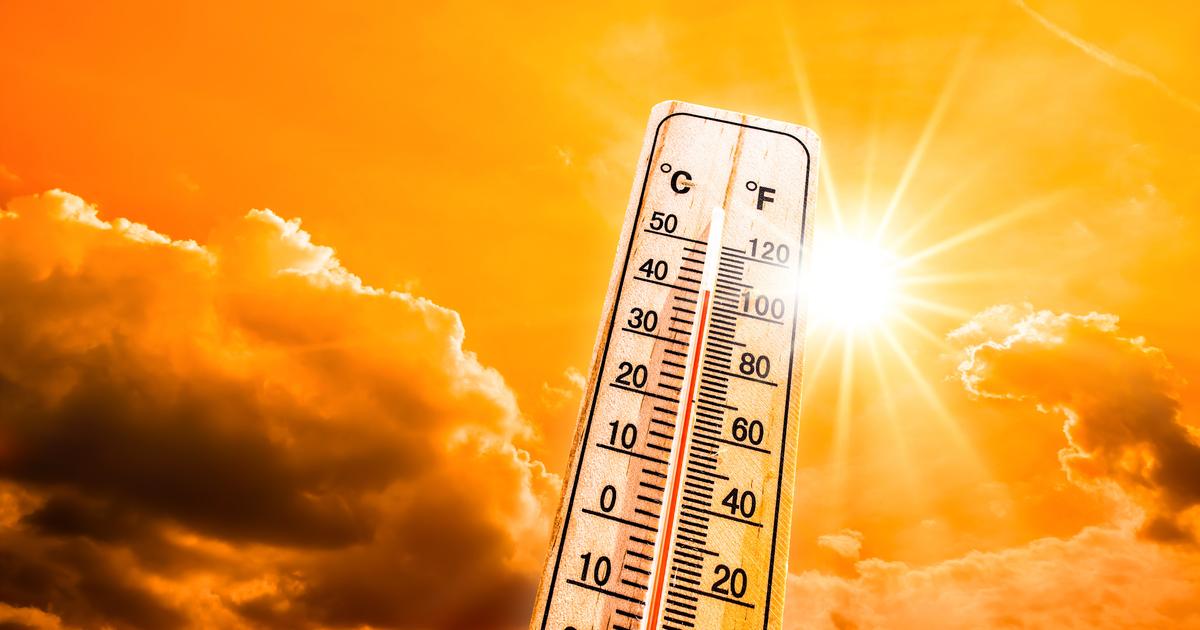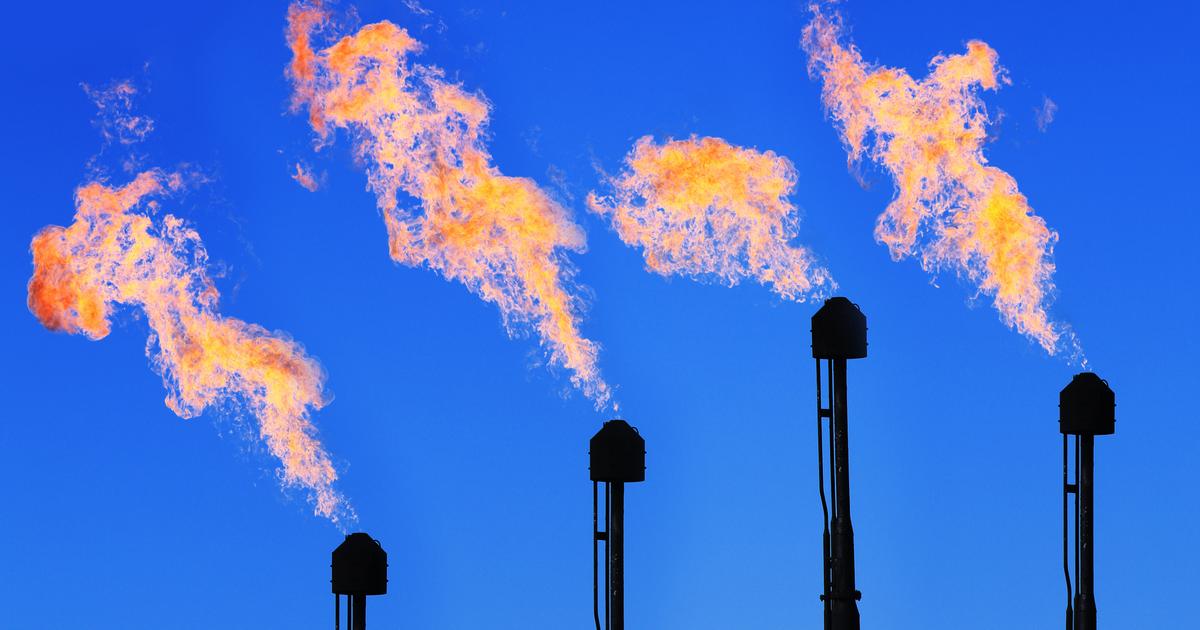Global warming is advancing steadily and is approaching the safety thresholds established by the nations of the world when they signed the Paris Agreement in 2015.
The objective of the pact is to ensure that the average increase in the Earth's temperature this century remains below two degrees Celsius and, if possible, below 1.5, always taking pre-industrial levels as a reference.
Because it is in the industrial era, starting in the 19th century, when human beings based their development on fossil fuels (coal, oil and gas), the main responsible for this climate crisis and to which humanity is still hooked.
However, what in 2015 might have seemed like a long way off (reaching that 1.5 degree warming if only occasionally) is now just around the corner.
Experts from the Met Office (the United Kingdom's meteorological agency) and the World Meteorological Organization (WMO) maintain that in the next five years there is a probability of around 50% that the average global temperature of the planet's surface will exceed 1, 5 degrees in any of those five years.
At the moment, the warming is about 1.1 degrees and the hottest year on record since 1850 was 2016, when it exceeded 1.2.
This same team of scientists points out that there is a 93% probability that at least one year between 2022 and 2026 will become the warmest and unseat 2016, according to the report released this Monday with these predictions that are updated annually.
For Petteri Taalas, Secretary General of the WMO, the study confirms that the human being is heading towards a temporary overcoming of the most ambitious objective of the Paris Agreement.
Taalas recalled that this 1.5 is not a random number, but "an indicator of the point at which climate impacts will be increasingly harmful to people and to the entire planet."
Because every tenth of an increase in the average temperature will also lead to a greater number of extreme events —such as heat waves and floods—, which will also be more intense.
More information
Portrait of a global crisis: this is what we already know about climate change thanks to the IPCC
Those responsible for the current warming and that which we will suffer in the near future are the greenhouse gases already emitted because these compounds remain in the atmosphere for decades or centuries depending on the substance.
Carbon dioxide, the most abundant, resists hundreds of years;
the much more powerful methane degrades in a couple of decades.
Despite the fact that the bad climate news is accumulating due to the lack of forceful measures in the face of this climate crisis, it is still in the hands of the human being to decide how far the level of warming will go this century.
Or, put another way, it is still possible to meet the most ambitious goals of the Paris Agreement, although this requires "brutal" reductions in gases and the use of fossil fuels, which are not on the table at the moment. , as Francisco Doblas, director of the Department of Sciences of the National Supercomputing Center (BSC-CNS), one of the research organizations participating in the study released this Monday, recalls.
Doblas reminds that a punctual overcoming, of a year like what is proposed in the WMO analysis, does not mean failing to comply with Paris.
Because when the threshold of 1.5 degrees is mentioned in this agreement, reference is made to the average temperature of periods of 20 years, not to exceedances in a year or a month.
That is why the human being still has a little more margin.
Although not much: the latest report from the IPCC - the international panel of climate scientists working under the umbrella of the UN - predicted that the barrier of 1.5 degrees will be overcome in a stable way in the decade of the forties of this century due to the gases that have already been emitted despite scientific warnings in recent decades.
The key is what will happen from then on: if it is possible to get down from that point again during the second half of this 21st century.
This requires drastic and rapid cuts in the use of fossil fuels.
“Efforts that should have started yesterday need to be launched,” Doblas urges.
The current climate plans of all the countries that have signed the Paris Agreement will lead to an average temperature increase of 2.8 degrees by the end of the century, according to IPCC estimates.
This means multiplying by 2.5 the current level of warming, which has already led to a notable growth in extreme events and produced impacts that will be irreversible for thousands of years, such as melting ice and rising sea levels.
That is why planned greenhouse gas cuts need to be tightened if the goal of keeping warming between 1.5 and 2 degrees is to be met.
Emissions cut
The scenario that can be considered the most optimistic at the moment is that the threshold of 1.5 degrees is temporarily exceeded and then lowered.
To achieve this trajectory, global greenhouse gases must fall by 23% in 2030 and 75% in 2050, in both cases compared to 2019 levels, as established by the IPCC.
That implies a swerve as the current climate plans of the nations would lead to emissions in 2030 being even higher than now.
“As long as we continue to emit greenhouse gases, temperatures will continue to rise.
And furthermore, our oceans will continue to get warmer and more acidic, sea ice and glaciers will continue to melt, sea levels will continue to rise, and our weather will become more extreme,” Taalas warns.
In some areas, the expected changes will be much more profound, such as in the Arctic, where temperature anomalies will be up to three times greater than the average for the planet.
This will lead to more melting and more emissions from melting soils.
Doblas points out that the results of the study that was presented this Monday are consistent with the longer-term forecasts that are included in the review that the IPCC is carrying out, of which this expert researcher in climate models is also taking part.
"We are not on the right track," acknowledges Doblas, who finds it difficult to be optimistic.
“Perhaps the crisis in Ukraine can help,” he says of the need to wean off the fossil fuels that overheat the planet.
And they also help finance wars.
You can follow CLIMA Y MEDIO AMBIENTE on
and
, or sign up here to receive
our weekly newsletter









